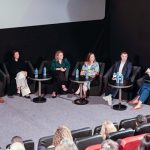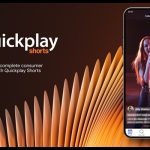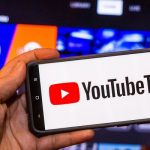Over the last three years, YouTube has paid creators, artists and media companies more than $50bn.
At its inaugural Made on YouTube event, the company has announced that it is expanding the platform’s monetisation system, the YouTube Partner Programme (YPP), to allow more creators to join the programme.
Shorts will offer creators new ways to earn revenue, as well as re-imagining the music industry and creator dynamic by opening up ad monetisation for videos with music.
The announcement reflects the diversity of the platform’s growing creator community and allows its over 2m monetising creators to make money on YouTube across any creative format.
Starting in early 2023, Shorts-focused creators can apply to YPP by meeting a threshold of 1K subscribers and 10m Shorts views over 90 days. These new partners will get all the benefits YPP offers, including ads monetisation across Shorts and long-form YouTube videos. This is another option to the existing criteria where long-form creators can still apply to YPP when they reach 1,000 subscribers and 4,000 watch hours.
To support creators who are early in their YouTube journey, YouTube will also introduce a new level of YPP with lower requirements that will offer earlier access to Fan Funding features like Super Thanks, Super Chat, Super Stickers and Channel Memberships.
In a statement, YouTube said: “Introducing a first-of-its-kind revenue-sharing model for Shorts: With 30bn+ daily views and 1.5bn+ monthly logged-in users, Shorts are exploding around the world. To reward this new creative class, beginning in early 2023, we’ll be moving away from a fixed fund and doubling down on a unique revenue-sharing model for Shorts for both current and future YPP creators. Because ads run between videos in the Shorts Feed, every month, revenue from these ads will be added together and used to reward Shorts creators and help cover the costs of music licensing. From the overall amount allocated to creators, they will keep 45% of the revenue, distributed based on their share of total Shorts views. The revenue share remains the same, no matter if they use music or not.”
The complexities of music licensing has meant that most long-form videos that feature music don’t result in creators being paid. To build a bridge between the music industry and creators, YouTube is introducing Creator Music, a new destination that gives creators easy access to an ever-growing catalogue of music for use in their videos, while providing artists and music rights holders with a new revenue stream for their music on YouTube.
Susan Wojcicki, CEO of YouTube, stated: “The YouTube Partner Programme was revolutionary when we launched it back in 2007, and it’s still revolutionary today. Over the last three years, YouTube has paid creators, artists, and media companies more than $50bn dollars. That $50bn dollars has changed the lives of creators around the world and enabled new voices and stories to be told. But we’re not done yet. When we introduced the YouTube Partner Programme, we made a big bet: we succeed only when our creators succeed. And today, we’re doubling down. We’re introducing the next chapter in how we reward creativity on our platform by expanding access to our YouTube Partner programme.”
Neal Mohan, YouTube’s Chief Product Officer, added: “YouTube’s first-of-its-kind, industry-leading Partner Programme changed the game for long-form video. And now we’re changing the game again, this time by opening it up to Short-form creators and introducing revenue sharing to Shorts. This is the first time revenue sharing is being offered for short-form video on any platform at scale, adding to the 10 ways creators can already earn revenue on YouTube. It’ll be available to all of those in YPP — including the new, mobile-first creators, who will be joining the programme for the first time.”
Pedro Pina, YouTube’s VP of Europe, Middle East & Africa, commented: “This is a pivotal moment for both YouTube and the creative ecosystem. In times of uncertainty, we’re bringing even more revenue opportunities to more creators and artists across more formats than ever – all of this is helping turbocharge an already healthy video ecosystem in MENA”.
Lyor Cohen, YouTube’s Global Head of Music, noted: “Creator Music is the future. We’re building the bridge between artists and creators on YouTube to elevate the soundtrack of the creator economy; it’s a win-win-win for artists, songwriters, creators and fans. With Creator Music, artists have a new way to get their music out into the world; fans can now discover music they love on their favourite creator’s channels, and both creators and artists will have new revenue opportunities.”

















































































